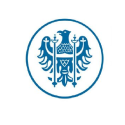
MA in Sociology Intercultural Mediation programme gives you a unique chance to ask and seek answers to the big questions about social changes taking place every day around you (think about migrations, social movements, cultural transformations and many more). What are the reasons for these changes? What are their implications for the individual and for the whole society?
We put great emphasis on the topic of Intercultural Mediation which means we help you understand how culture (in its great variety) informs social change and how it can be facilitated using the knowledge on how people create social groups, how they communicate, what kind of internal and external factors influence how society works. MA in Sociology Intercultural Mediation programme is an opportunity to study in an culturally open and intelectually stimulating environment with a guidance by scholars and experts in a diverse range of fields of reseach and social practice of intercultural communication. The master programme in sociology, specialisation "Intercultural mediation" is offered by the Institute of Sociology at the University of Wroclaw. The Institute of Sociology was founded in 1988. It is the oldest research and educational centre in Wrocław offering BA and MA programmes in sociology based on highly qualified staff. The Institute of Sociology employs 52 academic teachers, including 40 assistant professors and 12 associate professors and full professors. The Institute cooperates with a range of national and international academic partners.
The programme involves 905 teaching hours (121 ECTS). The particular focus of the "Intercultural mediation" programme is on the local, regional (Central and Eastern European) and global dimensions of culture and multiculturalism.
The graduates of the Intercultural mediation programme will acquire knowledge, skills and competences which they can use in their professional work in the areas of intercultural communication (on the local and corporate levels), conflict resolutions and actions aimed at social integration as well as practical (quantitative and qualitative) social research on the problems of multiculturalism, migration and social changes taking place globally and in Central and Eastern Europe. The programme will prepare them to work as experts in the state and local administration, non-governmental organisations and private sector companies offering them transferable skills in the areas of multiculturalism, diversity management and cultural conflict resolution.